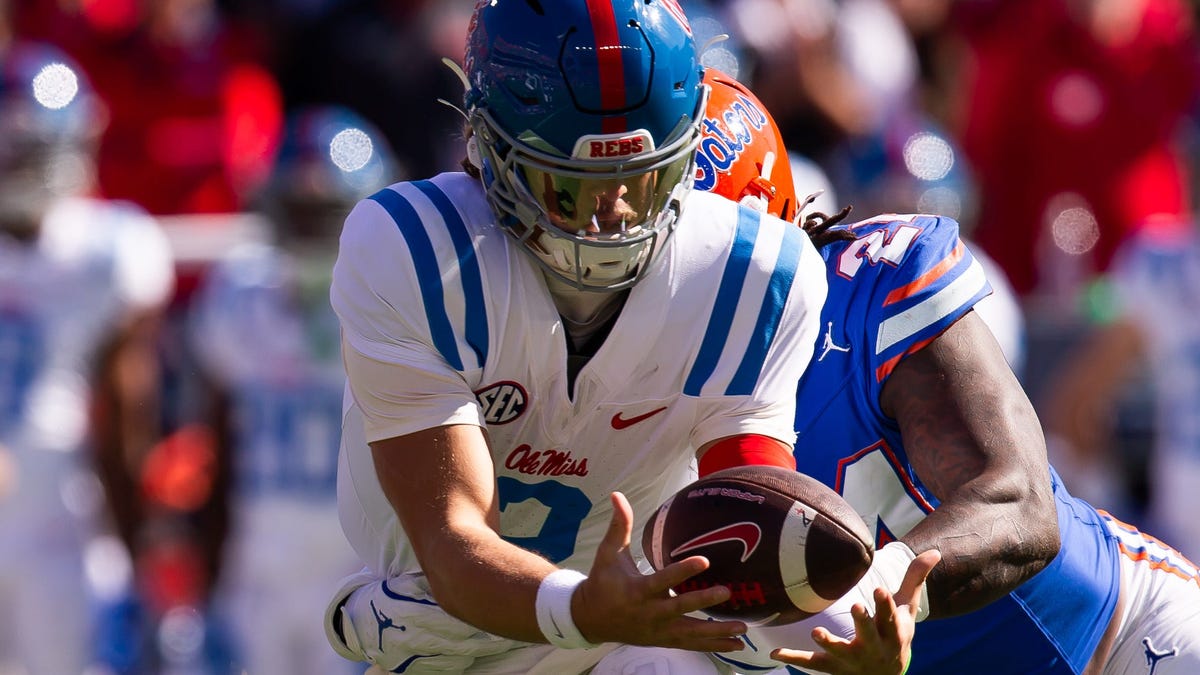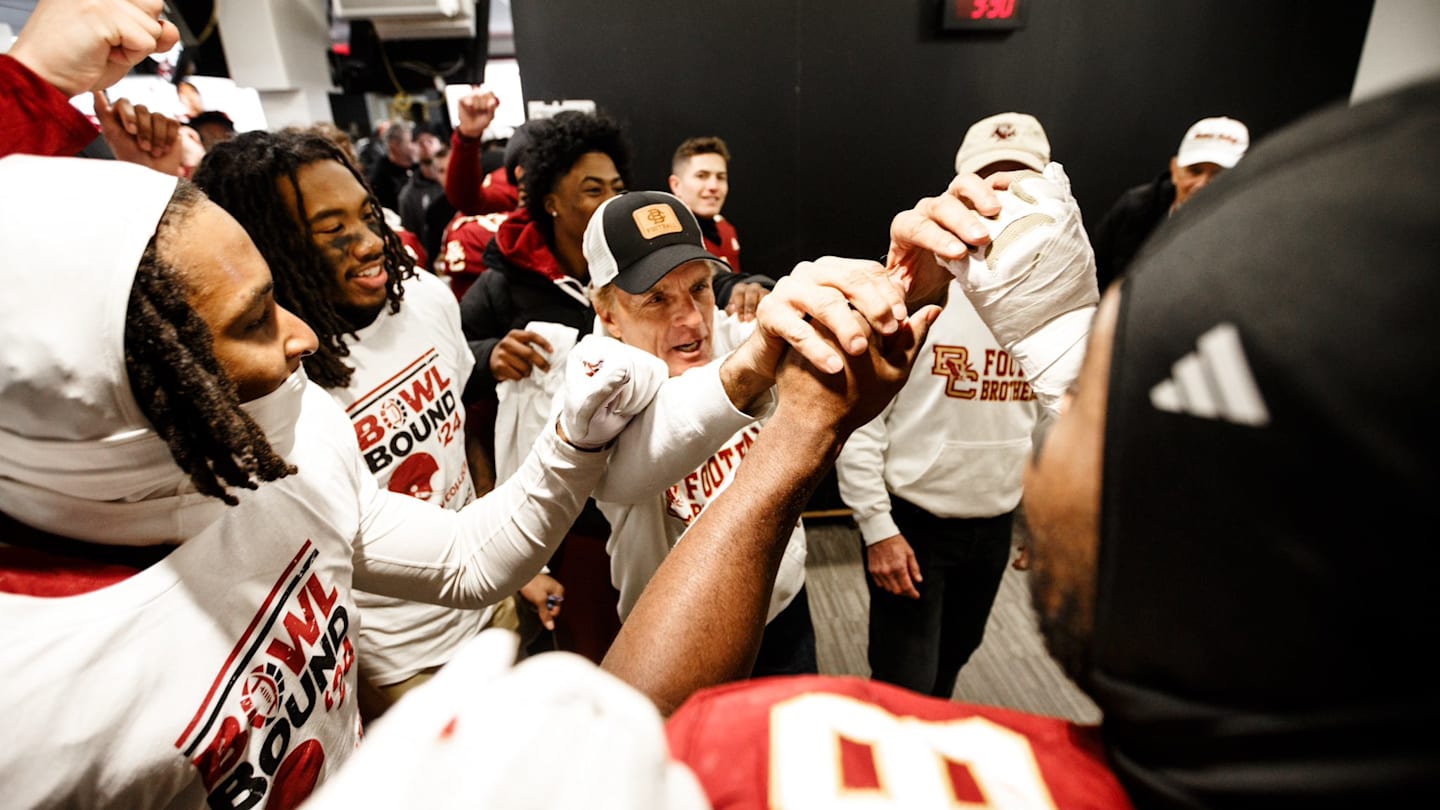Mississippi
Is Mississippi Really as Poor as Britain?

The shame of it! Mississippi has found itself in the humiliating position of being compared disobligingly with the United Kingdom. Just last week, the Financial Times ran a column asking, “Is Britain Really as Poor as Mississippi?”
Most Mississippians do not spend much time worrying about comparisons with Britain. The same cannot be said about those on the other side of the Atlantic. For Brits—and I am one, though now based in Jackson, Mississippi—the issue of whether they are more or less prosperous than Mississippi has become a thing. Indeed, the Financial Times now calls it “the Mississippi Question.”
It was nine years ago when Fraser Nelson, the editor of The Spectator, first suggested that the U.K. was poorer than any U.S. state but Mississippi. This came as an uncomfortable shock for many in Britain for whom Mississippi, as a byword for backwardness, conjures up clichés about the Deep South. Every time anyone has made the comparison since, there has been an indignant outburst from Britons keen to denounce the data.
In practice, when trying to provide a definitive answer to the Mississippi Question, no uniform, up-to-date set of data exists. But if you take the most recent U.S. figure for Mississippi’s GDP and divide it by the state’s population, you get a pretty accurate figure for GDP per capita in current dollar values. Make the same calculation for the U.K., with total GDP data divided by the population, and you end up with two comparable numbers.
Last year, by my math, the U.K.’s output per person was the equivalent of $45,485; Mississippi’s was higher, at $47,190. If Britain were invited to join the U.S. as the 51st state, its citizens would be at the bottom of the table for per capita GDP. Some might say that, for Mississippi, that is still disconcertingly close.
“That’s not fair!” the critics would counter. “When you compare the wealth of nations, you need to look at how far the money goes. Things cost more in the U.K. than in Mississippi.” To adjust the raw numbers, the argument runs, you need to use an economist’s tool called “purchasing power parity.” Sure enough, when you consider differences in the price of things in Britain and in America, the U.K. does appear richer than Mississippi. Thus, after such PPP adjustments, a Financial Times analyst suggested that for 2021, Mississippi’s per capita GDP was a mere $46,841 to the U.K.’s $54,590 (though conceding that, without the global city-state effect of London’s economy, much of Britain was relatively poorer than the Magnolia State).
“Hold on!” we on Team Mississippi retort. “Why adjust the numbers for our state using U.S. national data?” Here, a dollar goes a lot further than it would in New England or on the West Coast. To produce PPP-adjusted numbers for Mississippi that reflect the buying power of a dollar in places like New York or San Francisco, we say, is absurd. And sure enough, tinkering with the numbers to reflect purchasing power in Mississippi itself puts doubt on the U.K. coming out ahead.
Perhaps more interesting, however, than the way you cut the numbers for any given year is the fact that the gap between Mississippi and Britain seems to be growing. Never mind PPP—just run the numbers for GDP per capita in current dollars for the first part of 2023, rather than 2022, and you can see that Mississippi’s output is rising at a faster rate than Britain’s.
Over the past 30 years, several southern U.S. states have seen rapid economic growth. Texas and Nashville, for example, have become economic hubs to rival California or Chicago. North Carolina, Georgia, Tennessee, and even Alabama have all flourished. Mississippi was missing out. Until now.
Historically, business in Mississippi was highly regulated. Licenses used to be mandatory in order to practice many of even the most routine professions. The state has now lifted a lot of these restrictions, deregulating the labor market. According to a recent report by the American Legislative Exchange Council, a group representing conservative state legislators, the size of Mississippi’s public payroll has been pared back. In 2013, there were 645 public employees out of every 10,000 people in the population; today, the number is down to 607. Last year, Mississippi also passed the largest tax cut in recent history, reducing the income-tax rate to a flat 4 percent.
How did this come about? Policy makers here have drawn inspiration from the State Policy Network, a constellation of state-level think tanks, borrowing ideas that have worked well elsewhere. We got the idea for labor-market deregulation from Arizona and Missouri. Tennessee inspired us to move toward income-tax elimination. Florida’s successful liberalization stands as an example of how we could reduce more red tape.
What was once just a trickle of inward investment has turned into a steady flow. Growth is up, visibly: The areas of prosperity along the coast and around the state’s thriving university towns are getting larger, even if pockets of deprivation in the Delta remain.
Perhaps many in Britain find it hard to accept that Mississippi has overtaken them economically, because they still think of Mississippi as cotton fields and impoverished backwoods, peopled by folk who subsist on God, guns, and grits. But what if Britons’ reluctance to face changing economic realities comes from an outdated perception of themselves?
Most of my fellow Brits like to think that they live in a prosperous free-market society. They have not fully grasped the way in which their country has been sleepwalking toward regulatory regimentation. Stringent new regulations on landlords have seen thousands of owners pull out of the market, resulting in a dire shortage of rental accommodations. New corporate-diversity requirements have imposed additional costs across the financial-services sector, with little evidence that bank customers are getting a better deal.
Individually, none of these restrictions matters all that much. But together, this relentless micromanagement inhibits innovation and growth. And Brits have become so accustomed to government red tape that they no longer seem to see the crimson blizzard that blankets so many aspects of their economic, and even social, lives.
To be fair to them, for many years it did not seem to matter that taxes rose and the regulatory burden grew heavier. Thanks to the use of monetary stimuli in place of supply-side reform since the late 1990s, the country’s economy seemed to defy gravity, engineering the sort of growth that high taxes and tight regulation might otherwise preclude. Few in the U.K. seemed to notice as ever more aggressive doses of monetary stimuli were required to stave off a downturn. Only now that the option of further stimuli has been exhausted are the cumulative consequences of 30 years of folly becoming apparent.
To recognize that one’s country has been run on a false premise for three decades is difficult. To have to acknowledge that Britain is now poorer than the poorest state in the Union could prompt a moment of self-reckoning that many Brits seem determined to postpone.
Britain’s recurrent fixation with the Mississippi Question tells us as much about the country’s state of mind as it does about GDP. Rather than confront uncomfortable truths, my countrymen dispute the data. Instead of facing up to the consequences of bad public policy in Britain, many blame Brexit, or Ukraine.
Vladimir Putin’s war on Ukraine might have caused higher energy prices, but it alone does little to explain Britain’s poor economic performance. As for Brexit, though commentators who originally opposed it love to blame the country’s woes on it now, they never seem to ask why, if leaving the European Union was the cause of Britain’s lack of growth, the country has still managed to outperform much of Europe.
Since Britain voted to leave the EU in 2016, the U.K. economy has grown by 5.9 percent; German GDP has increased by only 5 percent. Unlike Germany, the U.K. has so far also managed to avoid recession. Far from a reduction in trade, Britain has seen a boom in exports, especially in the service sector, since withdrawing from the EU trade block. Service exports grew by nearly 23 percent in real terms from 2018 to 2022—the strongest growth in this sector among the G7 countries, according to data from the Organization for Economic Cooperation and Development, and far more than in neighbors such as Italy, Germany, and France.
In any case, Nelson posed the Mississippi Question nearly two years before Britain voted to leave the EU. The country’s lackluster output, productivity, and growth were apparent well before Brexit. Leaving the EU should have been a perfect opportunity to correct course, but little has been done to address the problem. In fact, after leaving the EU, Britain has been hit by a succession of disastrous policy choices.
Having rushed to impose a lockdown in the early stages of the coronavirus pandemic, British ministers insisted on more and more draconian measures long after it was apparent that such steps were disproportionate, as well as ruinously expensive. Then, in the name of achieving net-zero targets on “decarbonizing” the U.K. economy by 2050, successive governments have made rash commitments to move to renewables. Higher energy costs have helped price British industry out of world markets.
Instead of changing course, ministers have stuck stubbornly to their dogma—even though the latest moves to outlaw the internal combustion engine and new emissions regulations are making car ownership unaffordable for millions.
Mississippi has managed to borrow good ideas that have proved to work elsewhere. Britain, by contrast, has preferred to pioneer its own bad ideas. The former approach helps explain why Mississippi is emerging as part of a wider southern success story. The latter approach accounts for why a once-successful country is really struggling.

Mississippi
Mississippi blows opportunity at making the College Football Playoff with Florida loss

How coaches salaries and the NIL bill affects college football
Dan Wolken breaks down the annual college football coaches compensation package to discuss salaries and how the NIL bill affects them.
Sports Pulse
Anyone pushing for Mississippi to be in the College Football Playoff at this point is either on the payroll of the Southeastern Conference or wants to be at some point in the future.
That’s the truth, as plain and simple as it can be after the Rebels choked away the best opportunity in the history of their program Saturday, losing 24-17 at Florida.
No SEC championship game.
No playoff.
No nothin’, other than a New Year’s trip to Orlando or some such place that will force everyone in the program to pretend they’re honored and happy to be there.
And given the vaunted name, image and likeness payroll Lane Kiffin had to work with this year, it’s nothing less than a massive program-wide choke job. You want to play with the big boys after all these years? Fine, go ahead.
But you better take care of business. Instead, Ole Miss messed around and put together one of the most disappointing and confounding seasons they’ve ever had.
With all the hype, all the talent, all the momentum behind Kiffin after they dominated Georgia two weeks ago, are you really going to tell me the Rebels couldn’t do better than 5-for-18 on third and fourth down against a Florida team left for dead weeks ago?
We can break down all the mistakes Ole Miss made in this game from Kiffin’s hard-headedness in handing the ball to defensive tackle JJ Pegues in short yardage to a missed 34-yard field goal to a muffed punt return that handed Florida three points to quarterback Jaxson Dart refusing to tighten his chin strap. There are a lot of things Kiffin will regret.
But the bottom line is pretty straightforward. No team with losses to Florida, LSU and Kentucky should be within a mile of the playoff. And the worst part for Kiffin is that it was so avoidable.
Yeah, the SEC is tough. So what? We’re in a new era here with the 12-team playoff. In a league like the SEC, you can survive losses, especially if you also have good wins.
There has to be a limit, though. Three is just too many.
Florida’s playing well toward the end of the season, but a real playoff team goes into Gainesville and handles a Florida team that just got its sixth win.
LSU is a big brand name with lots of talent, but the Tigers are 6-4 and just not very good.
Kentucky almost certainly isn’t going to a bowl game.
Had any of those three games gone the other way, it would have almost certainly put Ole Miss in the 12-team field. The Georgia win was that valuable, and beating South Carolina 27-3 is one of the more underrated great performances of the season given how good the Gamecocks have been otherwise.
And at some point, there will be a three-loss team in the expanded playoff. Maybe even this year.
But it shouldn’t be Ole Miss. It can’t be Ole Miss, not when those losses all occurred to average or worse opponents.
You have to point the finger at Kiffin. Yes, he’s elevated the Rebels’ program significantly. But for years, his record in the really important games that define seasons has been questionable. After the Georgia win, that narrative was starting to turn. If Ole Miss had simply beaten Florida and Mississippi State, it would have all but locked up its spot. And Kiffin would have been arguably the most important figure in the modern history of Ole Miss football.
Maybe he will be one day. But it’s not going to be this year.
For Ole Miss to implode and miss the playoff with such a stacked roster, and when most of the hard work had been done, is a crushing disappointment.
It’s also a gift to the likes of Indiana and Tennessee. The manner in which the Hoosiers were beaten 38-15 by Ohio State certainly frames their resurgence a bit differently. They didn’t look the part at all and will end the season without any standout wins. But assuming they beat 1-10 Purdue next week, there’s little chance the committee can drop them below Ole Miss.
The Vols also stand to benefit from the developments in Gainesville. The first team out this week, according to the committee, they are in much better position heading into next Saturday’s game against Vanderbilt.
SEC homers will undoubtedly argue that both the Vols and Rebels should be in. Already this week, commissioner Greg Sankey was on social media sharing some strength of schedule data as he begins his public lobbying effort to stack the bracket with SEC teams.
And while the SEC is probably the best and deepest conference, you’d have to do a lot of mental gymnastics to conclude that the parity we’ve seen is evidence that it’s stacked with great teams. What’s closer to the truth is that the SEC has several pretty good, but deeply flawed teams, whose inconsistencies tend to show up on the road.
The SEC will spend the next couple weeks claiming that the league’s depth means all of them should be in the playoff. The committee shouldn’t — and won’t — fall for it. Sorry, Ole Miss. But you’re out.
Mississippi
What channel is Mississippi State football vs Missouri on today? Time, TV schedule to watch Week 13 game

Mississippi State football comes off a bye week with a chance to earn a win over nationally-ranked Missouri on Saturday.
The Bulldogs (2-8, 0-6) last played on Nov. 9 in a loss at Tennessee and have two more games against SEC opponents this year.
The Tigers (7-3, 3-3) lost a back-and-forth game at South Carolina last weekend.
Here’s how to watch the Mississippi State football vs. Missouri game today, including time, TV schedule and streaming information:
Mississippi State vs. Missouri will broadcast nationally on SEC Network in Week 13 of the 2024 college football season. Taylor Zarzour and Matt Stinchcomb will call the game from the booth at Davis Wade Stadium, with Alyssa Lang reporting from the sidelines. Streaming options for the game include FUBO, which offers a free trial to new subscribers.
- Date: Saturday, Nov. 23
- Start time: 3:15 p.m. CT
The Mississippi State football vs. Missouri game starts at 3:15 p.m. CT Saturday from Davis Wade Stadium in Starkville.
Clarion Ledger reporter Sam Sklar’s prediction: Missouri 37, Mississippi State 20
The Bulldogs are allowing 41 points per game in SEC play, and it’s difficult to see Missouri not having the same level of success. Expect big days from Burden and/or Wease, plus running back Nate Noel as MSU loses another game by double digits.
Odds courtesy of BetMGM as of Friday, Nov. 22
- Odds: Missouri -7.5
- O/U: 61.5 points
- Money line: Missouri -300, Mississippi State +240
- Aug. 31: EKU, W 56-7
- Sept. 7: at Arizona State, L 30-23
- Sept. 14: Toledo, L 41-17
- Sept. 21: Florida, L 45-28
- Sept. 28: at Texas, L 35-13
- Oct. 5: OPEN DATE
- Oct. 12: at Georgia, L 41-31
- Oct. 19: Texas A&M, L 34-24
- Oct. 26: Arkansas, L 58-25
- Nov. 2: UMass, W 45-20
- Nov. 9: at Tennessee, L 33-14
- Nov. 16: OPEN DATE
- Nov. 23: Missouri, 3:15 p.m. on SEC Network
- Nov. 29: at Ole Miss, 2:30 p.m. on ABC and ESPN+
Record: 2-8 (0-6 SEC)
- Aug. 29: Murray State, W 51-0
- Sept. 7: Buffalo, W 38-0
- Sept. 14: Boston College, W 27-21
- Sept. 21: Vanderbilt, W 30-27 2OT
- Sept. 28: OPEN DATE
- Oct. 5: at Texas A&M, L 41-10
- Oct. 12: at UMass, W 45-3
- Oct. 19: Auburn, W 21-17
- Oct. 26: at Alabama, L 34-0
- Nov. 2: OPEN DATE
- Nov. 9: Oklahoma, W 30-23
- Nov. 16: at South Carolina, L 34-30
- Nov. 23: at Mississippi State, 4:15 p.m. on SEC Network
- Nov. 30: Arkansas, TBD
Record: 7-3, 3-3 SEC
We occasionally recommend interesting products and services. If you make a purchase by clicking one of the links, we may earn an affiliate fee. USA TODAY Network newsrooms operate independently, and this doesn’t influence our coverage.
Mississippi
SMU drops nonconference game at home as Mississippi State finds bench-led boost

Reserve KeShawn Murphy scored 16 points and led a quartet of Mississippi State bench players in double-digit scoring and the Bulldogs beat SMU 84-79 on Friday night.
Reserves RJ Melendez scored 15 points, Riley Kugel 13 and Claudell Harris Jr. 10. Josh Hubbard was the lone Mississippi State (5-0) starter in double figures with 14 points on just 4-for-18 shooting. The Bulldogs’ starters went 10 for 33 from the floor compared to the 18-for-35 effort from the bench.
Cameron Matthews made a layup with 5:13 remaining to break a tie at 66. Murphy made a 3-pointer and Kanye Clary made 1 of 2 free throws and Mississippi State led for the remainder.
Reserve Kario Oquendo scored 13 points for the Mustangs (4-2), Matt Cross, Boopie Miller and Samet Yigitoglu all had 12 points and B.J. Edwards scored 10.
Mississippi State will get almost a full week off before returning to action on Thanksgiving night at the Arizona Tipoff in Tempe. The Bulldogs play their first game of the event against UNLV.
The Mustangs will head to Palm Springs, California, for the Acrisure Holiday Invitational, where they face Cal Baptist on Tuesday.
Find more SMU coverage from The Dallas Morning News here.
-

 Business7 days ago
Business7 days agoColumn: Molly White's message for journalists going freelance — be ready for the pitfalls
-

 Science4 days ago
Science4 days agoTrump nominates Dr. Oz to head Medicare and Medicaid and help take on 'illness industrial complex'
-

 Politics6 days ago
Politics6 days agoTrump taps FCC member Brendan Carr to lead agency: 'Warrior for Free Speech'
-
/cdn.vox-cdn.com/uploads/chorus_asset/file/25739950/247386_Elon_Musk_Open_AI_CVirginia.jpg)
/cdn.vox-cdn.com/uploads/chorus_asset/file/25739950/247386_Elon_Musk_Open_AI_CVirginia.jpg) Technology5 days ago
Technology5 days agoInside Elon Musk’s messy breakup with OpenAI
-

 Lifestyle6 days ago
Lifestyle6 days agoSome in the U.S. farm industry are alarmed by Trump's embrace of RFK Jr. and tariffs
-

 World6 days ago
World6 days agoProtesters in Slovakia rally against Robert Fico’s populist government
-

 News6 days ago
News6 days agoThey disagree about a lot, but these singers figure out how to stay in harmony
-

 News6 days ago
News6 days agoGaetz-gate: Navigating the President-elect's most baffling Cabinet pick

















